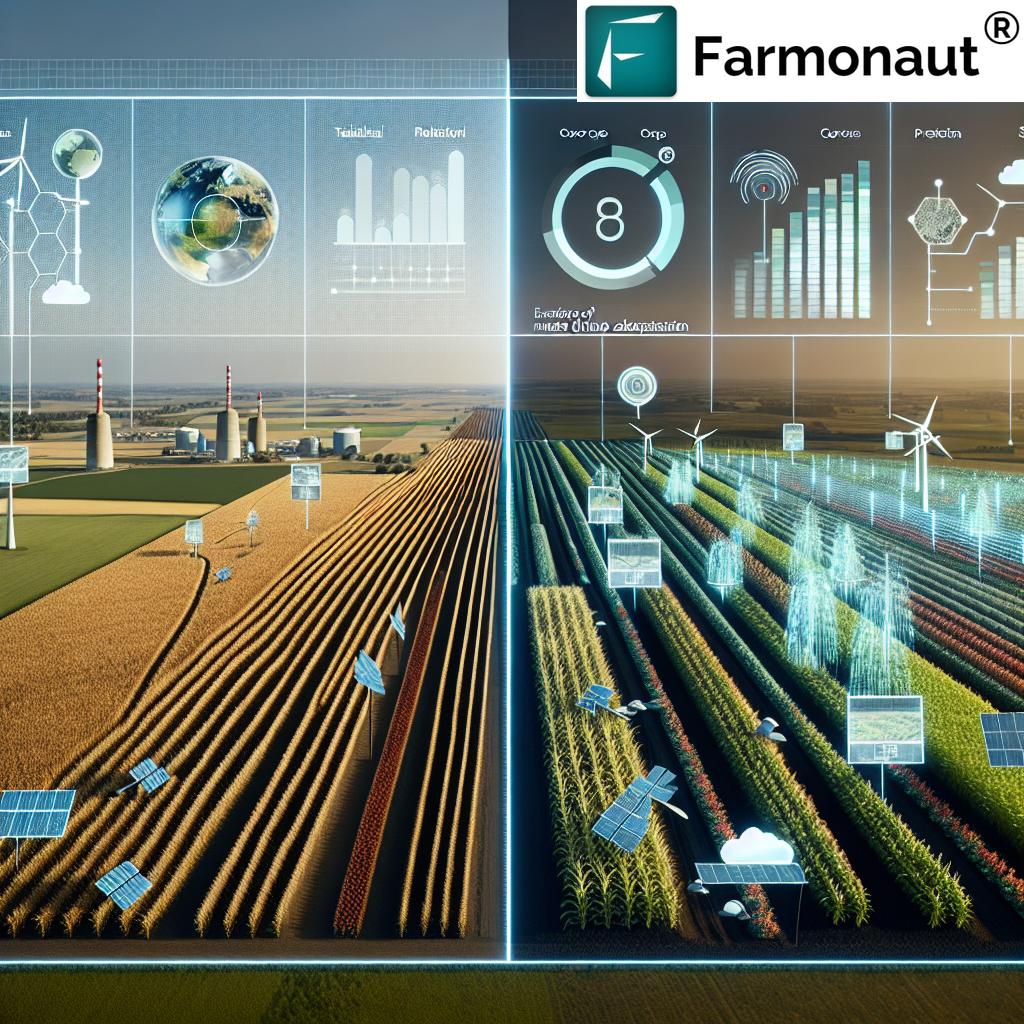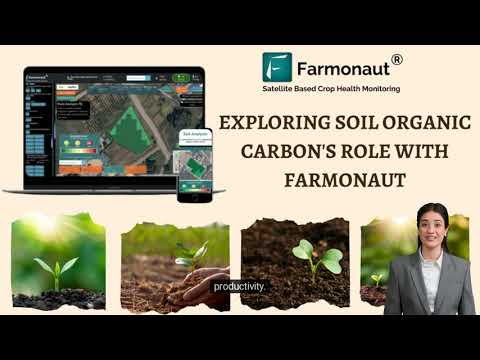Empowering Iowa’s Climate-Smart Agriculture: Extension Professionals Unite for Sustainable Farming Solutions
“The National Climate Action Convening united over 100 extension professionals to develop a comprehensive climate action plan for agriculture.”
In the face of escalating climate challenges, we find ourselves at a pivotal moment in agricultural history. The recent National Climate Action Convening has set the stage for a transformative journey towards sustainable farming practices and climate resilience in agriculture. As we delve into the outcomes of this groundbreaking event, we’ll explore how extension professionals are leading the charge in developing climate change solutions that will shape the future of Iowa’s agricultural landscape.
The National Climate Action Convening: A Catalyst for Change
The National Climate Action Convening brought together over 100 extension professionals, researchers, and policymakers to address the pressing issue of climate change in agriculture. This virtual gathering served as a platform for collaboration, knowledge exchange, and strategic planning to develop a comprehensive climate action plan for the agricultural sector.
Key focus areas of the convening included:
- Adaptation strategies for communities and natural resources
- Sustainable land management techniques
- Crop adaptation strategies
- Innovative agricultural technologies
- Soil health management
The convening emphasized the critical role of agricultural extension services in bridging the gap between scientific research and practical applications on farms. By leveraging the unique position of the extension system, participants aimed to develop actionable outcomes that would drive impactful solutions in agriculture.

Climate-Smart Agriculture: The Path Forward
Climate-smart agriculture (CSA) emerged as a central theme throughout the convening. This approach aims to increase agricultural productivity sustainably, enhance resilience to climate change, and reduce greenhouse gas emissions where possible. Let’s explore some of the key strategies discussed:
1. Precision Agriculture Technology
Precision agriculture technology plays a crucial role in implementing climate-smart practices. Tools like Farmonaut’s satellite-based farm management solutions offer farmers real-time insights into crop health, soil moisture levels, and other critical metrics. By leveraging these technologies, farmers can optimize resource use, reduce waste, and improve overall farm productivity.
Explore Farmonaut’s innovative precision agriculture solutions:
2. Soil Health Management
Improving soil health is fundamental to building climate resilience in agriculture. The convening highlighted various soil health management practices, including:
- Cover cropping
- Reduced tillage
- Crop rotation
- Organic matter incorporation
These practices not only enhance soil structure and fertility but also increase carbon sequestration, contributing to climate change mitigation efforts.
3. Crop Adaptation Strategies
As climate patterns shift, adapting crop varieties and management practices becomes crucial. Extension professionals discussed strategies such as:
- Developing drought-tolerant crop varieties
- Adjusting planting dates
- Implementing water-efficient irrigation systems
- Exploring alternative crops suited to changing climatic conditions
These adaptation strategies aim to maintain agricultural productivity in the face of climate variability and extreme weather events.
The Role of Agricultural Technology Innovations
Agricultural technology innovations are at the forefront of climate-smart agriculture. The convening emphasized the importance of integrating cutting-edge technologies to enhance farm management and decision-making processes.
“Extension professionals identified 15 key opportunities for implementing sustainable land management techniques and crop adaptation strategies.”
One such innovation is Farmonaut’s advanced satellite-based farm management platform. This technology offers farmers:
- Real-time crop health monitoring
- AI-based advisory systems
- Resource management tools
- Blockchain-based traceability solutions
By leveraging these tools, farmers can make data-driven decisions that optimize resource use, improve crop yields, and contribute to sustainable land management practices.
Discover Farmonaut’s API for developers: Farmonaut Satellite API

Collaboration and Knowledge Exchange
A key outcome of the National Climate Action Convening was the emphasis on collaboration and knowledge exchange among extension professionals, researchers, and farmers. This collaborative approach is essential for developing and implementing effective climate change solutions in agriculture.
Some of the strategies discussed to foster collaboration include:
- Creating virtual platforms for sharing best practices
- Organizing farmer-to-farmer learning networks
- Establishing partnerships between research institutions and extension services
- Developing training programs for extension professionals on climate-smart agriculture
By facilitating knowledge exchange, we can accelerate the adoption of sustainable farming practices and build a more resilient agricultural sector.
Actionable Outcomes and Future Directions
The National Climate Action Convening resulted in a series of actionable outcomes that will guide future climate programs and initiatives in Iowa’s agricultural sector. These outcomes include:
- Developing a comprehensive climate action plan for Iowa’s agriculture
- Identifying funding opportunities for climate-smart agriculture projects
- Establishing a network of demonstration farms showcasing sustainable practices
- Creating a framework for measuring and monitoring the impact of climate-smart interventions
- Integrating climate change considerations into existing extension programs and services
These outcomes set the stage for a coordinated effort to address climate challenges and build a more sustainable agricultural future for Iowa.
Explore Farmonaut’s mobile apps for on-the-go farm management:
Climate-Smart Agriculture Strategies and Implementation
| Strategy | Implementation Approach | Potential Impact |
|---|---|---|
| Precision Agriculture | Utilize satellite-based monitoring and AI-driven insights (e.g., Farmonaut’s platform) | Optimized resource use, reduced input costs, improved crop yields |
| Soil Health Management | Implement cover cropping, reduced tillage, and organic matter incorporation | Enhanced soil fertility, increased carbon sequestration, improved water retention |
| Crop Adaptation | Develop drought-tolerant varieties, adjust planting dates, implement water-efficient irrigation | Increased resilience to climate variability, maintained productivity under changing conditions |
| Agroforestry | Integrate trees and shrubs into agricultural landscapes | Diversified farm income, enhanced biodiversity, improved soil conservation |
| Greenhouse Gas Mitigation | Optimize fertilizer use, improve manure management, implement methane capture technologies | Reduced agricultural emissions, potential for carbon credits, improved air and water quality |
The Path Forward: Implementing Climate-Smart Solutions
As we move forward from the National Climate Action Convening, the focus shifts to implementing the strategies and recommendations developed during the event. This process will involve:
- Engaging with farmers and local communities to tailor solutions to specific needs
- Leveraging extension networks to disseminate information and best practices
- Collaborating with technology providers like Farmonaut to integrate innovative tools into farming practices
- Securing funding and resources to support the implementation of climate-smart agriculture projects
- Continuously monitoring and evaluating the impact of implemented strategies
By taking these steps, we can work towards building a more resilient and sustainable agricultural sector in Iowa and beyond.
The Role of Farmonaut in Climate-Smart Agriculture
As we explore the outcomes of the National Climate Action Convening, it’s clear that innovative technologies play a crucial role in implementing climate-smart agriculture practices. Farmonaut’s advanced satellite-based farm management solutions align perfectly with the goals outlined during the convening.
Farmonaut offers a comprehensive suite of tools that support sustainable farming practices:
- Satellite-Based Crop Health Monitoring: Provides real-time insights into vegetation health, soil moisture levels, and other critical metrics, enabling farmers to make informed decisions about irrigation, fertilizer usage, and pest management.
- AI Advisory System: Delivers personalized farm advice, weather forecasts, and expert crop management strategies, helping farmers optimize their practices for better yields and resource efficiency.
- Resource Management Tools: Assists in efficient allocation of water, fertilizers, and other inputs, reducing waste and environmental impact.
- Carbon Footprinting: Helps agribusinesses monitor and reduce their environmental impact, supporting efforts towards sustainability and compliance with environmental regulations.
By leveraging these technologies, farmers can implement many of the climate-smart strategies discussed at the convening, such as precision agriculture, efficient resource management, and data-driven decision-making.
Learn more about Farmonaut’s API for developers: Farmonaut API Developer Docs
Building Climate Resilience: A Collaborative Effort
The National Climate Action Convening highlighted the importance of collaboration in addressing climate challenges in agriculture. This collaborative spirit extends to the integration of technologies like Farmonaut into existing extension programs and services.
By combining the expertise of extension professionals with cutting-edge agricultural technology, we can:
- Enhance the effectiveness of climate-smart agriculture initiatives
- Provide farmers with a more comprehensive support system
- Accelerate the adoption of sustainable farming practices
- Improve the overall resilience of Iowa’s agricultural sector
As we move forward, the integration of these technologies into extension services will be crucial in translating the convening’s outcomes into tangible benefits for farmers and the environment.
Conclusion: Embracing a Sustainable Future
The National Climate Action Convening has set the stage for a transformative journey towards climate-smart agriculture in Iowa and beyond. By uniting extension professionals, leveraging innovative technologies, and fostering collaboration, we are paving the way for a more resilient and sustainable agricultural future.
As we implement the strategies and recommendations developed during the convening, tools like Farmonaut’s satellite-based farm management solutions will play a crucial role in helping farmers adopt climate-smart practices. By embracing these technologies and working together, we can build an agricultural sector that not only withstands the challenges of climate change but thrives in the face of them.
The path forward is clear: through collaboration, innovation, and a commitment to sustainability, we can empower Iowa’s farmers to lead the way in climate-smart agriculture, ensuring a prosperous and resilient future for generations to come.
Farmonaut Subscription Plans
Frequently Asked Questions
Q: What is climate-smart agriculture?
A: Climate-smart agriculture (CSA) is an approach that aims to transform and reorient agricultural systems to effectively support development and ensure food security in a changing climate. It focuses on sustainably increasing agricultural productivity, adapting and building resilience to climate change, and reducing greenhouse gas emissions where possible.
Q: How can extension professionals contribute to climate-smart agriculture?
A: Extension professionals play a crucial role in promoting climate-smart agriculture by bridging the gap between scientific research and on-farm application. They provide farmers with up-to-date information, training, and support in implementing sustainable practices, adapting to climate change, and adopting new technologies.
Q: What are some key strategies for implementing climate-smart agriculture?
A: Key strategies include precision agriculture, soil health management, crop adaptation, water management, agroforestry, and greenhouse gas mitigation. These strategies often involve a combination of traditional knowledge and innovative technologies to optimize resource use and build resilience.
Q: How can farmers benefit from using satellite-based farm management solutions like Farmonaut?
A: Satellite-based solutions like Farmonaut provide farmers with real-time data on crop health, soil moisture, and other critical metrics. This information enables more precise decision-making, leading to optimized resource use, reduced input costs, improved crop yields, and ultimately, more sustainable and profitable farming practices.
Q: What role does collaboration play in addressing climate challenges in agriculture?
A: Collaboration is essential in addressing climate challenges in agriculture. It allows for the sharing of knowledge, resources, and best practices among farmers, researchers, extension professionals, and technology providers. This collaborative approach accelerates the development and adoption of effective climate-smart solutions across the agricultural sector.





















Would your organization like to collaborate with a University in India to design and deliver various programs, events and courses in this field?
Dear Dr. Vasavada,
Thanks for reaching out. Please share more details at support@farmonaut.com. Someone from our team will get back to you.
Best Regards